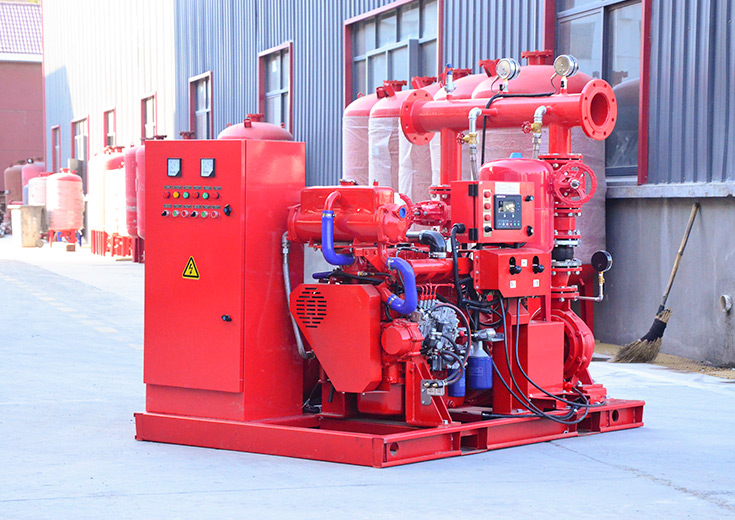
Fire protection is essential in residential buildings to safeguard lives and property. A reliable fire pump is the backbone of any fire suppression system, ensuring consistent water pressure to sprinklers and hydrants. Choosing the right fire pump for residential buildings requires evaluating several factors, including building size, local regulations, and power supply. Here’s a comprehensive guide to help you make the right choice.
Fire pumps are mechanical devices that boost water pressure in fire protection systems. In residential buildings, they ensure that water is delivered efficiently to sprinkler systems, even in high-rise or low-pressure areas. This is especially critical in multi-story buildings where gravity and static pressure can limit water flow.
Ensure the fire pump meets NFPA 20 standards and any local fire safety codes to guarantee compliance and safety.
In residential areas, minimizing noise and maximizing space are critical. Electric pumps are often preferred for their quieter operation and smaller footprint.
For high-rise residential buildings, installing a backup power source (e.g., a generator) is essential if an electric pump is the primary choice.
Fire pumps should be installed in easily accessible locations to simplify inspections and servicing.
| Building Type | Recommended Fire Pump |
|---|---|
| Low-rise residential | Electric fire pump with jockey pump |
| High-rise residential | Diesel fire pump or electric pump with backup generator |
| Remote residential areas | Diesel fire pump for reliability |
The ideal fire pump for a residential building depends on the structure's height, power supply reliability, and local regulations. Both electric and diesel fire pumps have their advantages, but a careful assessment of your building's specific needs will guide the best decision.